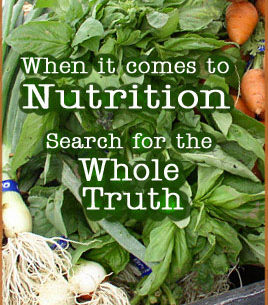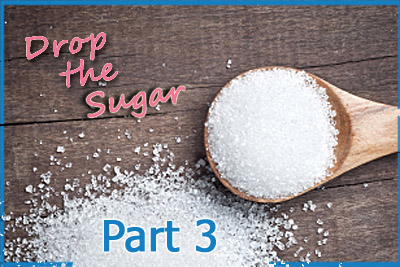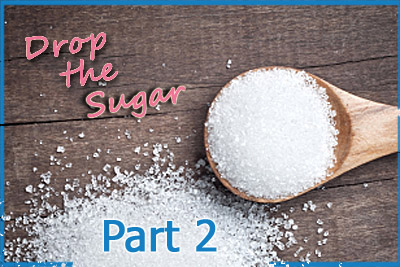
It’s a new year and every new year brings with it “New Year’s resolutions” designed to help us improve our lives in some way –either by ditching a bad habit or acquiring some new good habits. By far, the most common New Year’s resolutions have something to do with losing weight or getting into shape. And somehow, no matter how well intentioned these resolutions are, for many of us, our weight loss efforts never seem to really get off the ground.
If losing weight and getting into shape were that simple we all would have accomplished it by now! The truth is, there are many factors that contribute to weight gain, and consequently our ability to successfully manage our weight. While most of us are focused on how to lose weight we may be ignoring an even more insidious health threat that coincidentally, also hinders our ability to diet successfully.Whether you follow the weight loss advice of health gurus like Dr. Oz or Dr. Mercola, or if you keep up with the latest findings on weight loss, one thing is becoming very clear: managing your body’s insulin response is the key to not just weight loss but to ultimate health. That’s because too much sugar creates a cascade of health problems that not only hinder our attempts to lose weight and keep it off, they put us at risk for chronic inflammation which is now considered to be the main contributing factor in the development of most diseases –including heart disease and even cancer.
The statistics on sugar consumption are staggering. By one estimate, the average American consumes over 150 pounds of sugar and sweeteners (like corn syrup) every year! Phew! That’s a LOT of sugar. According to research and analysis firm Datamonitor, U.S. consumers’ reliance on sugar and sweeteners for total energy consumption is more than twice the global average.
Other studies indicate that 75% of the American diet is made up of refined carbohydrates like sugar, white flour, white pasta and potatoes. It turns out that sugar is actually more fattening than fat. What that means for anyone who is serious about losing weight and getting healthy is cutting way back on sugar and simple carbohydrates, which your body quickly converts into sugar!
Sugars and starches are carbohydrates and carbohydrates are one of our body’s main sources of energy (the other being fat). When your body needs energy it will first look for carbohydrates to burn as fuel. If there are fewer sources of carbohydrates available, then your body will break down your fat reserves for energy. That’s the key to successful weight loss and maintenance. By limiting your intake of sugars and starches, you force your body to use up your fat reserves instead.
What happens if you don’t? The opposite. When you consume more sugar than your body needs for energy, your blood sugar becomes elevated so your pancreas secretes a hormone called insulin. Insulin is designed to balance blood sugar by carrying glucose to your cells where it is normally burned off for energy. Storing sugar in these cells is your body’s way of balancing its blood sugar levels. This is a normal insulin response. But if we consume more sugar than our body needs for energy then the excess insulin in our blood is stored as fat to be burned for energy at some point in the future.
Like it or not, most of us have become addicted to sugar in one if not all of its various forms. Our love affair with sweets leads to consistently elevated blood sugar levels. When that happens, our energy-burning cells begin to become resistant to the action of insulin (hence the term “insulin resistance”).
If insulin can’t be balanced due to insulin resistance, our entire hormonal system can be thrown out of whack, leading to unintended weight gain and ultimately to diabetes and obesity. This situation is exacerbated by the fact that as we age our metabolic processes slow down and we simply don’t need as many carbohydrates as we did when we were younger, so our continuing overconsumption of sugars and simple carbs makes it all the more difficult to lose those extra pounds!
While weight gain is the most visible result of this hormonal imbalance, a much deeper more insidious process is taking place within our bodies that is far more dangerous to our long-term health. Sugar is acidic, so when large quantities of sugar remain in the body, it creates an acidic and hostile environment that leads to cellular damage and inflammation. This causes us to age prematurely on the inside as well as on the outside.
According to Dr. Andrew Weil, sugar and other refined carbohydrates appear to trigger a chemical reaction that creates pro-inflammatory compounds in the body. A conclusion that is further supported by the findings of a 2010 study published in the Journal of the American Medical Association that women who consume excess sugar are prone to chronic inflammation.
If you’ve resolved to lose weight and get healthy this year, first consider some of the ways you can cut back on your consumption of sugar (especially processed sugars) and simple carbohydrates. Part of the trick is to free yourself from the addictive taste of sweets and the best way to do it is to go cold turkey for a couple of weeks. This may seem difficult at first, but you may also be surprised to learn that after doing without for a while, you no longer crave sweets as much as you once did. If you’re really lucky you might actually find the overly sugary taste of certain foods a turn off to your taste buds!
See Drop the Sugar – Part 2 by Donya Fahmy
See Drop the Sugar – Part 3 by Donya Fahmy










